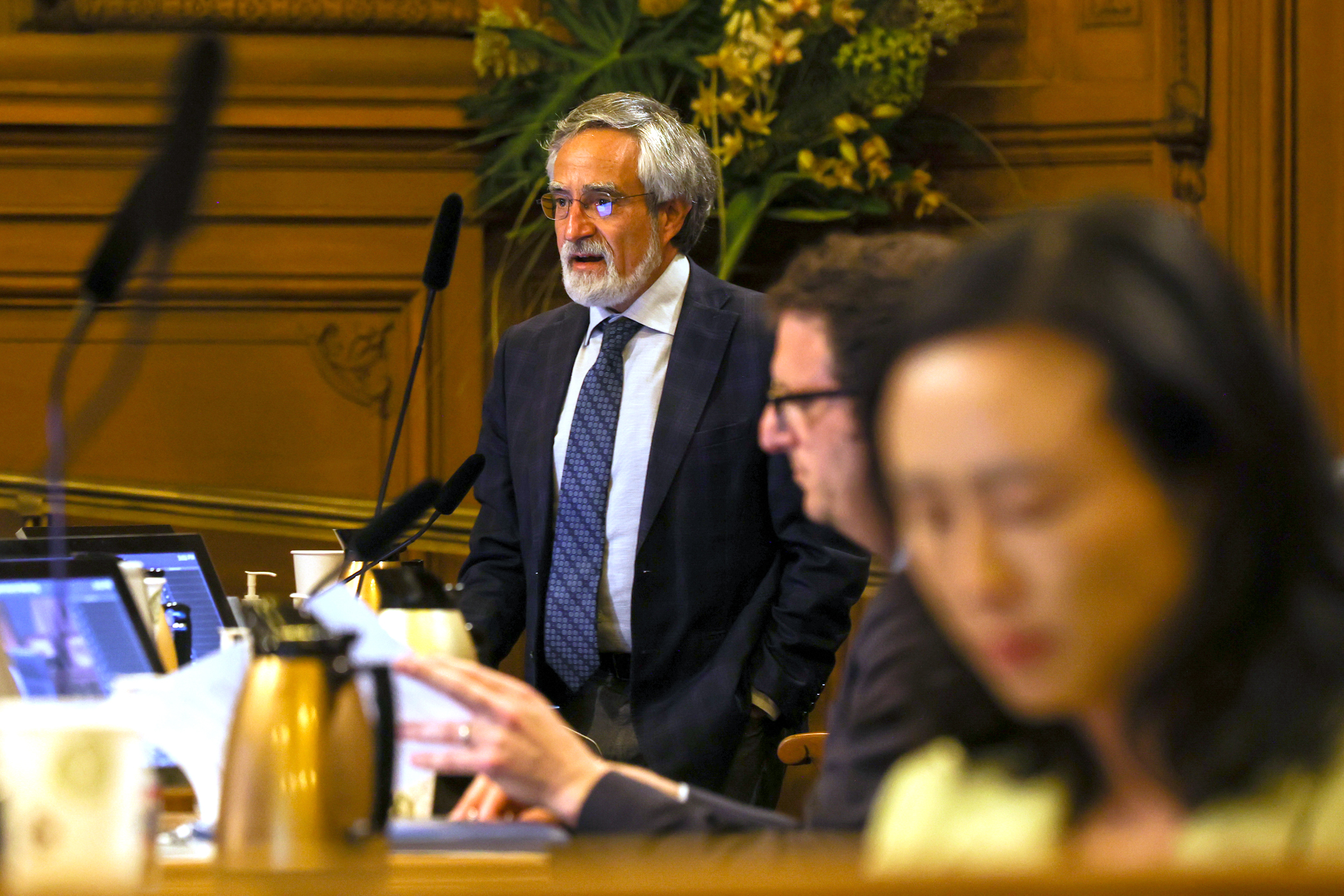Police can’t deploy their deadly robots just yet after public backlash prompted the San Francisco Board of Supervisors on Tuesday to say SFPD should wait until the policy for using them gets finalized.
The board also called for an inquiry into controversial labor practices at Twitter and cleared the way for car-free weekends on the Great Highway through 2025.
License To Kill Suspended
After saying SFPD could use its remote-controlled robots in life-or-death situations, supervisors flipped the script—at least for now—and banned the devices for deadly force. That change may be temporary, however, with the original policy waiting in the wings.
The language approved in an 8-3 vote last week let police use the robots—originally intended for surveillance, or bomb disposal—for deadly force in extreme situations with strict oversight.
Supervisor Aaron Peskin, who spearheaded the killer robot bill, proffered the compromise, which passed Tuesday in an 8-3 vote with Catherine Stefani, Matt Dorsey and Rafael Mandelman opposing.
Supervisor Dean Preston and other opponents of the initial policy capitalized on vigorous media coverage by staging a protest at City Hall on Monday.
After backing the initial policy, Supervisor Gordon Mar wound up supporting Peskin’s compromise on Tuesday after announcing he would change his vote.
Since the original version went back to committee, it’s possible the robot policy could come back for a board vote. But that would be after the holidays, before a newly reconstituted Board of Supervisors.
Great Highway Pilot Approved
An extended pilot for car-free weekends and Friday afternoons and evenings on the Great Highway passed in a 9-2 vote that exposed continuing tensions over the policy.
Mar sponsored the bill, which drew support from east side supervisors and put them at odds with Connie Chan and Myrna Melgar, who nominally support the closures, but represent west side residents who depend on driving the Great Highway.
Refusing to restore car access on Fridays was a major sticking point, which is partly why a copy of the bill is still in committee, in case Mar’s successor Joel Engardio or someone else wants to revisit the matter.
Confronting ‘Extreme Hardcore’ Twitter
During Roll Call, Peskin called for a hearing about what’s happening at Twitter with all the concerning reports coming out about the company, including the possible exploitation of H-1B visa-holders and ersatz sleeping quarters for employees that are under investigation by the city’s Department of Building Inspection.
Along similar lines, Supervisor Ahsha Safaí said he wants to see how to bolster authority of city agencies such as the Office of Labor Standards Enforcement, so it’s better equipped to investigate suspected labor abuses by the social media giant, including layoffs without notice.
Also at Roll Call: Supervisor Preston called for a hearing on evictions from permanent supportive housing facilities. He also introduced a resolution calling on Mayor London Breed and the Department of Homelessness and Supportive Housing to prevent the displacement of families at the Oasis Family Shelter, which is set to close Dec. 15.
Saving Face at the Elections Commission
A resolution to block funding for the Elections Commission to recruit potential replacements for longtime Elections Director John Arntz was continued for one week.
As Peskin has previously hinted, the wayward commission—which floated the idea of replacing the universally well-regarded elections chief, supposedly over equity goals but actually over obscure policy issues—may be frog-marched into a face-saving compromise.
The vocal proponents of open-source voting playing an outsize role in the campaign to defenestrate Arntz “were not doing themselves any favors,” Peskin added.
Peskin said he reached out to Elections Commission President Chris Jerdonek and Commissioner Cynthia Dai, among others, to “try and bridge an unseemly dynamic” over the issue. He said he’d make sure the board paid for recruitment some other time.
The Elections Commission convenes a special meeting on Monday, presumably to decide where to go from here.
